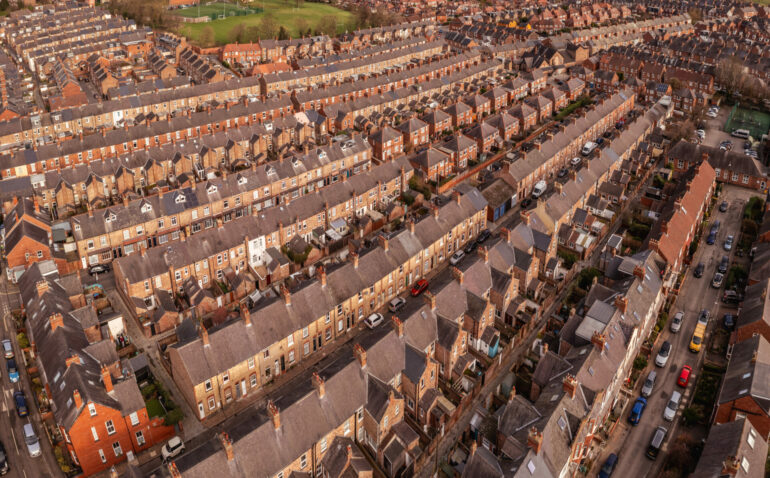The UK housing market remained subdued in May, but signs of stabilisation are emerging, according to the latest UK Residential Market Survey from the Royal Institution of Chartered Surveyors (RICS).
Although new buyer enquiries and agreed sales continued to fall, the pace of decline has slowed, and expectations for the coming year have turned positive.
A net balance of -26% of surveyors reported a fall in buyer interest, marking a fifth consecutive monthly decline. Agreed sales also remained in negative territory at -28%.
However, short-term expectations have improved, with respondents now expecting a flat rather than falling market over the next three months. Looking ahead, +25% of contributors anticipate increased sales volumes over the next year — the strongest reading since February.
House prices were largely flat, with the net balance dipping slightly to -8% from -3% in April. Price expectations for the year ahead remain in positive territory at +34%, while new listings edged higher for the eleventh month running. Valuation activity also strengthened, with a net balance of +19% reporting an increase in appraisals year-on-year.
Simon Rubinsohn, chief economist at RICS, said: “RICS welcomes this week’s announcement of the government’s commitment to a longer-term affordable housing settlement. This should provide greater certainty and support more strategic delivery.
“The creation of a new housing finance vehicle via Homes England is also a potentially important step in boosting supply, particularly if it improves access to funding for smaller developers. Together, these measures could help address the UK’s chronic supply shortfall and support broader economic stability.”
In the lettings market, tenant demand rose sharply, posting a net balance of +22%, the strongest since September 2024. However, landlord instructions fell again, returning a net balance of -34%, pushing rental growth expectations up to +43%.
Tarrant Parsons, senior economist at RICS, said: “Sentiment across the UK residential property market remains somewhat subdued, with ongoing uncertainty around global trade policies and the dampening effect of transactions being brought forward ahead of the Stamp Duty changes at the end of March continuing to weigh on buyer activity.
“However, near-term sales expectations are showing signs of stabilisation, suggesting that while muted conditions may persist in the short term, a further deterioration appears unlikely.
“Looking ahead, the outlook is more optimistic, with respondents anticipating a gradual recovery in sales activity over the next twelve months. That said, the pace and extent of any improvement will partly depend on the Bank of England’s ability to continue cutting interest rates.”
Jeremy Leaf, north London estate agent and a former RICS residential chairman, added: “There seems little doubt we’re seeing a ‘bottom’ to the market.
“Activity dropped as so many transactions were brought forward to take advantage of the stamp duty holiday which ended on 31st March.
“As a result, prices have softened but not fallen significantly. Since then, the market has been in recovery mode, settling into a new normal.
“Existing transactions are not generally falling through but are more protracted. Buyers are even more in control, negotiating hard and taking their time before deciding on an enviable choice of properties – particularly flats.”
On the rental side, Leaf said: “Listings have continued their steady decline without dropping sharply which has helped support rents.
“Many landlords are waiting to see when the Renters’ Rights Bill is likely to become law before deciding whether to sell.
“However, we have also noticed too there is an affordability limit on rents – particularly for flats – which most tenants won’t breach, prompting landlords to cut their cloth accordingly.”



